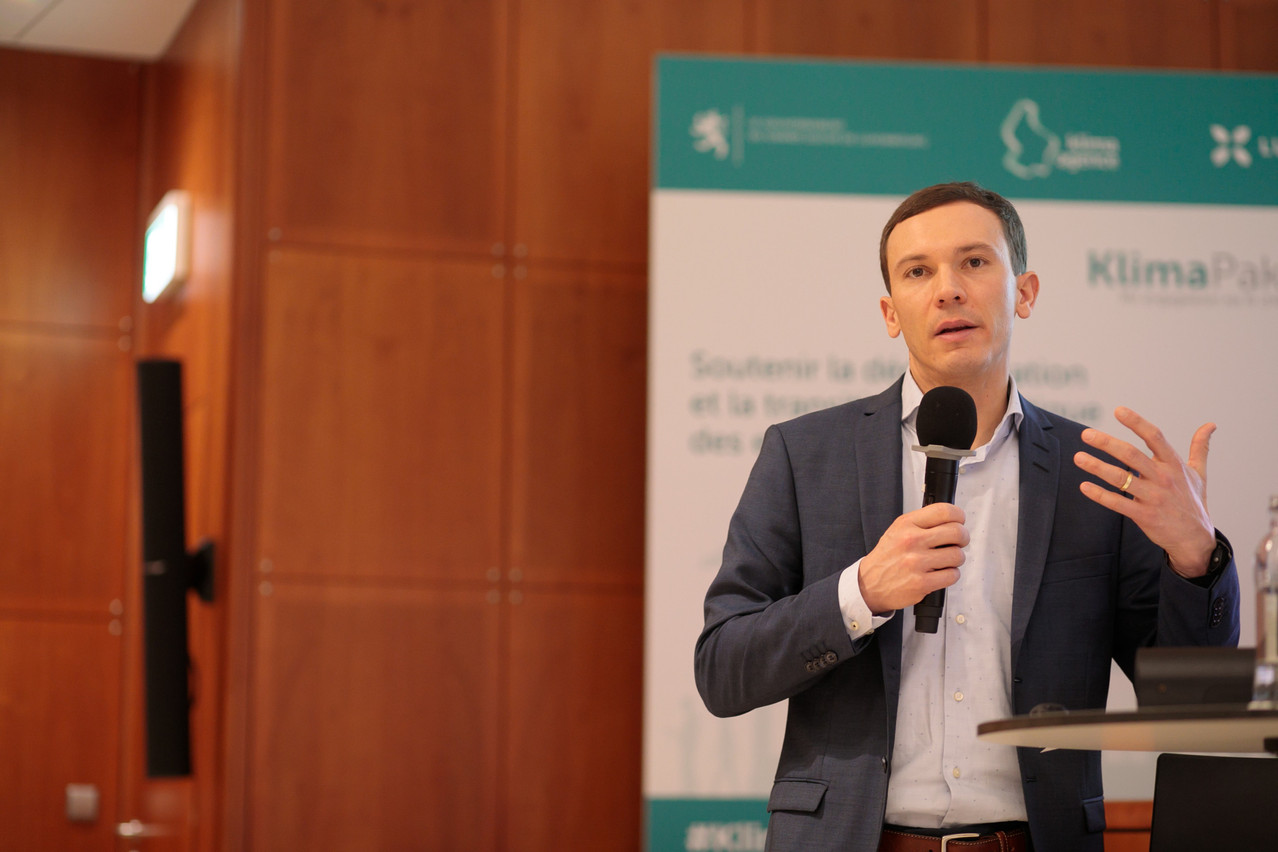In a continuation of the Klimapakt fir Gemengen (the climate pact for communes), this version for businesses aims to gather information on all the subsidies available for companies planning on transitioning to greener alternatives and then to give them advice on the best solutions available for them. At the heart of this initiative by the ministries of energy, economy, SMEs and the environment are national agencies Luxinnovation and Klima-Agence.
“Our joint objective is to pave the way for companies that want to make their activities more sustainable. We are therefore implementing the KPB in partnership, pooling our expertise and complementary tools,” , CEO of Luxinnovation, tells Delano.
A clearer overview
With a plethora of sustainability tools and support offered by various players in Luxembourg, the KPB aims to help companies--especially the country’s 36,000 SMEs--avoid unnecessary processes while encouraging them to implement sustainable technologies and behaviours. “We want to make the measures and resources for a transition more accessible,” says the Klima-Agence’s director Fenn Faber.
“There are a lot of subsidies, so it’s important to present them in a way that makes it meaningful for smaller businesses.”
The national climate agency’s role in this collaboration is to help create a subsidies catalogue on a national level, to encourage communes--already covered by their own Klimapakt--to work together with their local businesses, provide sustainability expertise to companies but also create tools to help companies set climate-related priorities.
“There are a lot of subsidies, so it’s important to present them in a way that makes it meaningful for smaller businesses.” The challenge, he says, will lie in showing small companies what aids are meaningful for them. This is where the KPB acts.
As Avit Blanchy, senior advisor for corporate R&D and innovation at Luxinnovation puts it in a separate interview, the Klimapakt fir Betriber was created so that, on their environmental facet, companies do not have the impression of being lost because of almost competing aids when in fact there is a continuum and complementarity between existing subsidies."
Different subsidies available
Many financial aids are available for businesses in Luxembourg. The ministry for SMEs for instance launched at the end of last year to support companies in their sustainability, services and digitalisation optimisation. Luxinnovation launched with all kinds of players providing environmentally friendly solutions for businesses. The Klima-Agence has in the past created and provided several tools to help companies, like a national solar cadastre or a list of planners of large-scale photovoltaic projects.
Luxinnovation has also launched Fit4Sustainability, as a part of its Fit4 offer. This programme helps companies get in touch with experts who can assess their environmental impact and offer an action plan. The agency helps companies with figuring out their eligibility for different aids and the amount of financial support they could receive, as well as helps them fill out any necessary forms. “We help in the preparation in amount to avoid the company to waste time on steps for which it is not eligible,” Blanchy explains.
Though, as he underlines, companies have to be careful not to accept any quotes or pay any advances before requesting a subsidy.
Transitioning in a crisis
Regardless of the amounts of financial aids, “there will always be a cost for companies,” Blanchy acknowledges when asked about the willingness of businesses to spend money amidst an economic crisis. Despite the added value of new, sustainable technologies, “reducing emissions, beyond what is required by the regulations and standards, has a cost, it doesn't bring any benefits.
The economic world is following the financial world, which has already realised that in fact there is going to be a reallocation of resources towards the least polluting activities.
However, “some companies are also conscious that over time, changes previously undertaken will have a positive impact not just on the environment but also on their reputation,” he says. “Even for more self-interested businesses, I think that the economic world is following the financial world, which has already realised that in fact there is going to be a reallocation of resources towards the least polluting activities. This is already underway and will intensify in the future."
A sentiment echoed by Faber. The incentive is different for companies than for communes, he says, as “a company always has to make sure that its business concept works, and not just do it out of altruistic reasons.” But, “the demand comes from the sector itself because they know we have sectorial targets in Luxembourg where we have to be able to reduce our CO2 emissions, where businesses want to know where they can contribute to the solution.”
“There is a strong need for guidance on establishing priorities for solutions and to receive a framework that enables innovation there where companies are not making progress,” he concludes.


